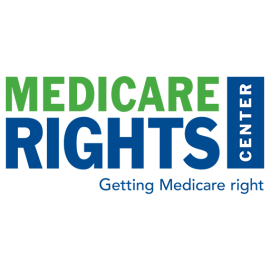Medicare and Dental Coverage: A Crisis Looming
Expanding dental coverage through Medicare and community outreach could improve public health and lower long-term expenses for aging seniors."

Expanded Medicare and Dental Coverage for Medicare Beneficiaries: A Crisis Looming
Expanding dental coverage through Medicare and community outreach could improve public health and lower long-term expenses for aging seniors. The problem is, the only dental coverage is through a Medicare Advantage plan, or Part C. If you are looking at a Medicare Advantage plan, buyer beware.
I have included this audio, so you can learn about Medicare Advantage and why I suggest Buyer Beware!
Stand alone, traditional Medicare part A, is a hospital insurance plan funded by our taxes. These funds are placed in a medicare hospital trust fund. And it pays the hospitals directly for hospital care provided. With Original Medicare, you have the freedom to choose from any provider or hospital that accepts it. MA plans have participating providers and in network providers.
Understanding Medicare Dental Services
Medicare dental services are a crucial component of oral health care for Medicare beneficiaries. While Original Medicare does not cover routine dental services, there are several avenues to access necessary dental care. One popular option is Medicare Advantage plans, which combine Part A and Part B and often include additional dental coverage. These plans may cover preventive services, such as cleanings and X-rays, as well as more extensive services like fillings, extractions, and dentures.
For those seeking dental care, it’s essential to understand what services are covered under Medicare and explore the available options. Medicare beneficiaries can look into Medicare Advantage plans, private dental insurance, and other alternatives to ensure they receive the necessary dental care. By doing so, they can maintain good oral health and avoid potential dental or oral complications.
The need for Expanded Medicare and Dental Coverage is pressing, given the impending healthcare crisis. As policymakers contemplate reducing funding for vital community programs such as Medicare and Medicaid, older Americans grapple with obstacles to essential healthcare, including the fact that Original Medicare does not cover dental services, necessitating additional coverage through Medicare Advantage plans. A report from Oral Health America underscores the growing dental crisis among older Americans.
Challenges in Dental Coverage:According to the report, several challenges contribute to the dental crisis:
- Lack of affordable dental coverage options.
- Service provider shortages.
- Absence of preventive programs in communities nationwide.
These challenges place significant burdens on older adults seeking dental care.
Policy Solutions:To address these issues and enhance public health, we must consider policy solutions that prioritize dental coverage. Some critical solutions include:
- Expanding dental coverage within Medicare and Medicaid.
- Designating dental coverage as an “essential health benefit” under the Affordable Care Act, expanding access to services for those under 65.
- Implementing state mandates to provide dental healthcare within Medicaid, ensuring equitable service provider payment.
Key Legislation:Several bills have been introduced in Congress to address the dental crisis among seniors and individuals with disabilities. Notable ones include:
- The Comprehensive Dental Reform Act of 2013, which extends comprehensive dental coverage to all seniors covered by Medicare, Medicaid, and the Veterans Administration.
- The Special Care Dentistry Act of 2011, which would require states to provide dental health services to seniors, the blind, and disabled individuals under the Medicaid program, with 100% federal funding.
Conclusion:Strengthening community education, improving dental service provider payments, and addressing shortages are vital to tackling the dental crisis affecting seniors and individuals with disabilities. The lack of dental coverage in Medicare and Medicaid, along with the high cost of private insurance options, continues to impede access to necessary care. To improve and modernize Medicare and Medicaid, policy changes must expand coverage and benefits, including comprehensive dental care, while ensuring affordable access to healthcare.

Don't hold your breath on getting coverage for dental anytime soon
Medicare Advantage Plans
Medicare Advantage plans are a popular choice for Medicare beneficiaries seeking comprehensive dental coverage. Offered by private insurance companies, these plans combine Part A and Part B and often include additional benefits like dental, vision, and hearing coverage. Medicare Advantage plans may cover routine dental services, such as cleanings and X-rays, as well as more extensive services like crowns, dentures, and oral surgery.
When selecting a Medicare Advantage plan, it’s crucial to review the plan’s dental coverage details, including the services covered, copays, and coinsurance. Medicare beneficiaries should also consider the plan’s network of dentists and any limitations on coverage. By carefully evaluating these factors, beneficiaries can choose a plan that best meets their dental care needs.
Dental Coverage Options for Seniors
Seniors have various options for accessing dental coverage, including Medicare Advantage plans, private dental insurance, and dental discount programs. Medicare Advantage plans, as mentioned earlier, often include dental coverage as an additional benefit. Private dental insurance plans, on the other hand, can be purchased separately and may offer more comprehensive coverage.
Dental discount programs, which are not insurance plans, offer discounted rates on dental services in exchange for an annual fee. These programs can be a cost-effective option for seniors who require routine dental care. By exploring these options, seniors can find a dental coverage solution that fits their needs and budget.
Proposals for Expanded Medicare Dental Coverage
There are ongoing efforts to expand Medicare dental coverage, including proposals to add dental benefits to Medicare Part B. The Elijah E. Cummings Lower Drug Costs Now Act, for example, would provide dental coverage under Part B, starting in 2025. This proposal aims to address the significant gap in dental coverage for Medicare beneficiaries, who often struggle to access necessary dental care.
Other proposals, such as the Medicare Dental, Vision, and Hearing Benefit Act, would also expand Medicare dental coverage, including preventive services and more extensive benefits. These proposals aim to improve oral health outcomes for Medicare beneficiaries and reduce the financial burden of dental care. By supporting these legislative efforts, we can work towards a future where all Medicare beneficiaries have access to essential dental services.
Conclusion
Medicare dental services are an essential aspect of oral health care for Medicare beneficiaries. While Original Medicare does not cover routine dental services, there are various options available to access dental care, including Medicare Advantage plans, private dental insurance, and dental discount programs. Proposals to expand Medicare dental coverage aim to address the significant gap in dental coverage and improve oral health outcomes for Medicare beneficiaries. By understanding the available options and advocating for expanded coverage, Medicare beneficiaries can ensure they receive the necessary dental care to maintain good oral health.
FAQ: Expanded Medicare and Dental Coverage
Does Medicare cover dental care?
No, Original Medicare (Medicare Part A and Part B) does not cover most dental care, including routine dental exams, cleanings, and other basic dental services. Some Medicare Advantage plans (Part C), however, offer additional dental benefits as part of their coverage.
What kind of dental services are included in Medicare Advantage plans?
Medicare Advantage plans often provide coverage for routine dental services such as oral exams, cleanings, and sometimes x-rays. These plans can also offer more extensive dental services, including coverage for tooth extractions, root canals, and other major dental procedures. Specific benefits can vary based on the plan, so it’s essential to check what each plan covers.
Do Medicare Advantage plans include preventive dental care?
Yes, many Medicare Advantage plans offer preventive services like routine cleanings, fluoride treatments, and oral exams. These are designed to help maintain dental health and potentially prevent more extensive, costly treatments.
Can Medicare beneficiaries obtain dental insurance through private insurance companies?
Yes, Medicare beneficiaries can purchase private dental insurance or enroll in standalone dental plans that provide dental coverage beyond what is typically covered by Medicare. Plans like Delta Dental offer options that cater to various dental needs, including preventive care and major procedures.
What are the typical out-of-pocket costs for dental care under Medicare Advantage?
Out-of-pocket costs, like co-pays and coinsurance, depend on the Medicare Advantage plan. There may be cost-sharing amounts for certain covered services, and many plans have an annual maximum benefit. After reaching this annual maximum, enrollees may need to cover dental costs themselves until the following year.
Are dental services covered for specific health conditions?
Yes, certain dental services may be covered by Medicare if they are necessary for medical treatment related to conditions like head and neck cancer, cardiac valve replacement, or organ transplants, as these can require extensive dental care prior to treatment. Coverage includes dental workups as part of a comprehensive health plan to ensure patient safety.
Does Medicare cover dentures or dental implants?
Most Medicare plans, including Original Medicare, do not cover dentures or dental implants. However, some Medicare Advantage plans offer these benefits, though it often requires a separate premium or an additional fee.
How do Medicare Advantage plans compare to private dental coverage?
Medicare Advantage plans that include dental services may be a cost-effective option for Medicare beneficiaries, as they can provide a combination of health and dental benefits. However, private dental coverage or standalone dental plans may offer more comprehensive benefits, such as higher annual maximums and coverage for major dental care procedures.
Are x-rays and oral exams covered under Medicare Advantage?
Yes, many Medicare Advantage plans cover basic dental services, including x-rays and oral exams, as part of their routine dental care benefits. Coverage specifics, such as the frequency of exams and x-rays, may vary by plan.
What if I only need preventive dental care?
For individuals needing only preventive care, Medicare Advantage plans with dental coverage might suffice. These plans often cover services like cleanings, exams, and x-rays, which can help prevent dental issues from developing into more severe, costly conditions.
Are dental costs shared between Medicare and enrollees?
Yes, cost-sharing is common in Medicare Advantage plans, where enrollees may pay part of the cost for services like root canals or more extensive dental care. There may be co-pays, deductibles, or coinsurance for covered benefits.
Why is dental coverage important for Medicare beneficiaries?
Dental health plays a vital role in overall well-being, especially for older adults. Nearly two-thirds of Medicare beneficiaries do not have private dental insurance, so expanded Medicare Advantage plans with dental benefits provide an affordable way to maintain oral health without significant out-of-pocket expenses.
Resources:
- "Oral Health America, State of Decay: Are Older Americans Coming of Age without Oral Healthcare?" available at http://www.toothwisdom.org/action.
- CNN, "Dental crisis could create 'State of Decay.'"
- Centers for Medicare and Medicaid Services, Chronic Conditions Among Medicare Beneficiaries, 2012 Chartbook, available at http://www.cms.gov/Research-Statistics-Data-and-Systems/Statistics-Trends-and-Reports/Chronic-Conditions/Downloads/2012Chartbook.pdf.
- Center for Medicare Advocacy, Fournier v. Leavitt, more at http://www.medicareadvocacy.org/fournier-v-leavitt/.










